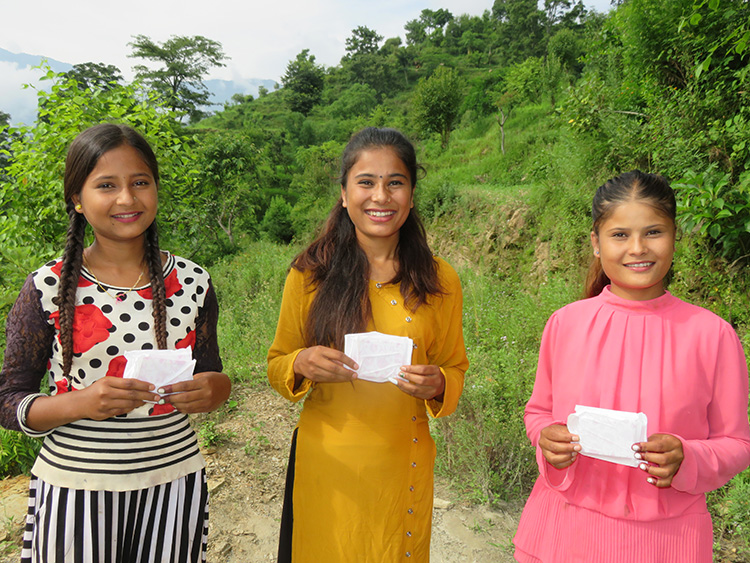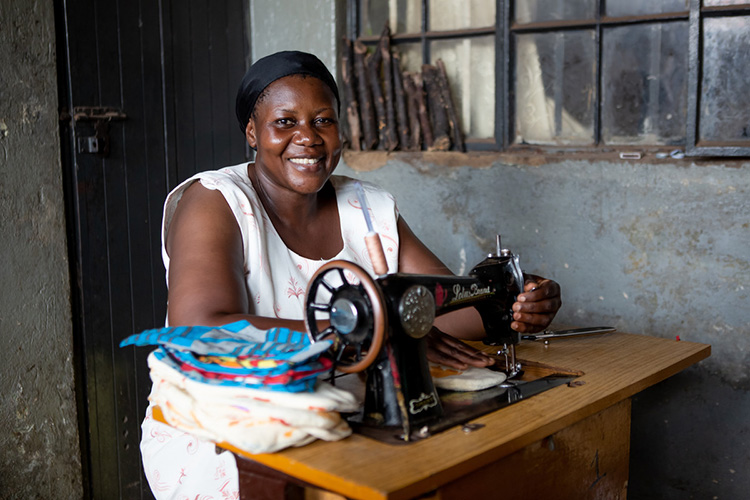What it means to face menstrual poverty during a pandemic
Periods are a fundamental part of every woman's life.
There are still too many young girls and women in the world however, who do not experience their period with dignity, as they do not have access to water, sanitary pads or hygiene products. Periods are often stigmatized and wrongly linked to impurities. Girls often abstain from going to school because they do not have access to clean toilets and experience embarrassment. In some cultures, women and girls on their periods are prohibited from having access to certain places in their communities.
Menstrual poverty is not only about access to sanitary pads, but also about access to safe and hygienic spaces to take care of oneself. It is also about the right to live in communities free from the stigma and discrimination that still accompany menstruation in different places around the world. With the advent of the Covid-19 pandemic menstrual poverty has worsened for many women and girls.
On the occasion of World Menstrual Hygiene Day 2021, ActionAid proposes a reflection on the importance of ensuring safe access and suitable hygienic solutions that provide dignity to all women, regardless of where they live.
MENSTRUATION AND COVID-19
During humanitarian crises menstruation stigma does not stop. Women living in poverty do not have access to tampons or sanitary pads. This situation has become even worse during the pandemic leaving even more women and girls in many communities without access to dignified management of their periods.
At ActionAid, we are committed to the distribution of hygiene supplies, as well as providing access to separate toilets for girls in schools. We also promote the auto-production of sanitary pads using local materials while raising awareness among the local population to overcome menstruation stigma. Since the beginning of the pandemic we have included in the health kits that we have distributed to the population, along with masks and sanitizers, sanitary products, which are very difficult to find during emergency situations.
To date, we have intervened in 40 countries to deal with the consequences of the pandemic, reaching over 21 million people in Asia, Africa, the Middle East, Europe and America. In addition to distributing concrete aid, such as food and sanitary products, we have also created safe spaces for women and have spread campaigns to combat disinformation.
MENSTRUAL POVERTY IN MALAWI
In Malawi, around 50% of the population lives below the poverty line. For many people, buying a single package of sanitary pads is equivalent to spending the salary of a whole day's work. Many young girls use what they can, from pieces of cloth to paper and even banana peels.
With the advent of the pandemic and the exacerbation of poverty, many women and girls found themselves left on their own.
In addition to harming personal dignity, menstrual poverty also has negative effects on the social life of young girls who, due to poor hygiene, often contract infections or miss school days during their periods. It is estimated that in Africa, 1 in 10 girls cannot go to school during their period due to lack of hygiene products or because there are no safe bathrooms to use in school.
ACTIONAID'S COMMITMENT
We have been present in Malawi since 1990. During 2020, we intervened alongside local communities to cope with the effects of the pandemic, through the provision of economic aid to the people in the most affected districts as well as distribution of hygiene products such as sanitary pads, soap and clean linen.
For years we have been working with the local population organizing courses for the self-production of sanitary pads and the creation of safe spaces and school clubs to which students can turn for information, hygiene products and medical assistance. During the pandemic we reinforced these spaces, which turned out to be fundamental as places of listening and help for many women.
Menstrual poverty is still a reality for many, too many women. Today, on Menstrual Hygiene Day, you can help end menstrual poverty by supporting our projects for women and girls:


